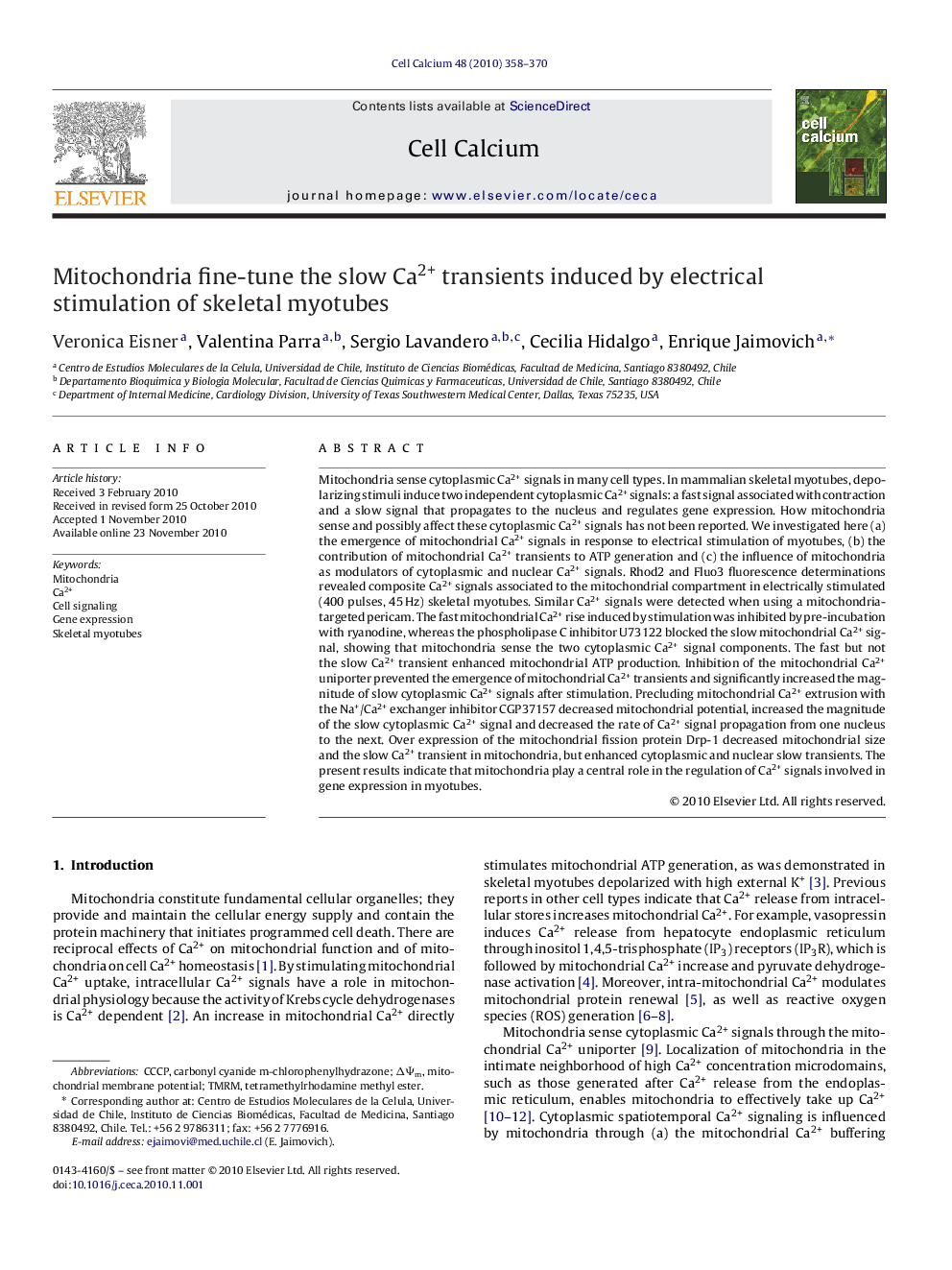| Article ID | Journal | Published Year | Pages | File Type |
|---|---|---|---|---|
| 2166290 | Cell Calcium | 2010 | 13 Pages |
Mitochondria sense cytoplasmic Ca2+ signals in many cell types. In mammalian skeletal myotubes, depolarizing stimuli induce two independent cytoplasmic Ca2+ signals: a fast signal associated with contraction and a slow signal that propagates to the nucleus and regulates gene expression. How mitochondria sense and possibly affect these cytoplasmic Ca2+ signals has not been reported. We investigated here (a) the emergence of mitochondrial Ca2+ signals in response to electrical stimulation of myotubes, (b) the contribution of mitochondrial Ca2+ transients to ATP generation and (c) the influence of mitochondria as modulators of cytoplasmic and nuclear Ca2+ signals. Rhod2 and Fluo3 fluorescence determinations revealed composite Ca2+ signals associated to the mitochondrial compartment in electrically stimulated (400 pulses, 45 Hz) skeletal myotubes. Similar Ca2+ signals were detected when using a mitochondria-targeted pericam. The fast mitochondrial Ca2+ rise induced by stimulation was inhibited by pre-incubation with ryanodine, whereas the phospholipase C inhibitor U73122 blocked the slow mitochondrial Ca2+ signal, showing that mitochondria sense the two cytoplasmic Ca2+ signal components. The fast but not the slow Ca2+ transient enhanced mitochondrial ATP production. Inhibition of the mitochondrial Ca2+ uniporter prevented the emergence of mitochondrial Ca2+ transients and significantly increased the magnitude of slow cytoplasmic Ca2+ signals after stimulation. Precluding mitochondrial Ca2+ extrusion with the Na+/Ca2+ exchanger inhibitor CGP37157 decreased mitochondrial potential, increased the magnitude of the slow cytoplasmic Ca2+ signal and decreased the rate of Ca2+ signal propagation from one nucleus to the next. Over expression of the mitochondrial fission protein Drp-1 decreased mitochondrial size and the slow Ca2+ transient in mitochondria, but enhanced cytoplasmic and nuclear slow transients. The present results indicate that mitochondria play a central role in the regulation of Ca2+ signals involved in gene expression in myotubes.
